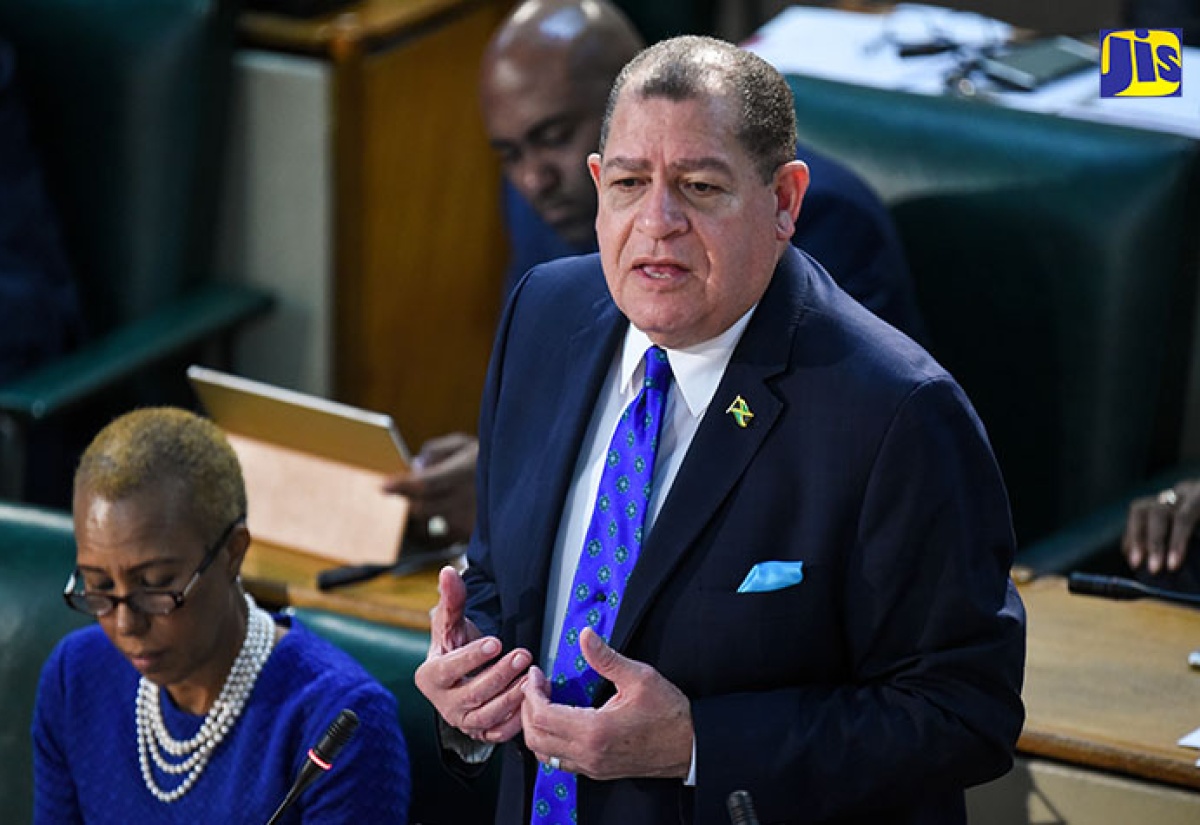Government Reduces Debt to GDP Ratio
By: , March 9, 2018The Key Point:
The Facts
- He informed that the Government has decided to adopt the International Monetary Fund’s (IMF) definition of Public Debt.
- “This redefinition, plus our continued fiscal discipline, means that we expect to close this fiscal year with a Public Debt to GDP ratio of 105 per cent. We are well on track to bring the ratio down to at least 60 per cent of GDP by fiscal year 2025/26. We remained disciplined in our debt-reduction strategy and we kept our commitment,” Mr Shaw said.
The Full Story
The Government has reduced its national debt to gross domestic product (GDP) by going below the target of 111 per cent for the 2017/18 fiscal year.
This was disclosed by Minister of Finance and the Public Service, Hon. Audley Shaw, as he opened the 2018/19 Budget Debate in the House of Representatives on March 8.
He informed that the Government has decided to adopt the International Monetary Fund’s (IMF) definition of Public Debt.
“This redefinition, plus our continued fiscal discipline, means that we expect to close this fiscal year with a Public Debt to GDP ratio of 105 per cent. We are well on track to bring the ratio down to at least 60 per cent of GDP by fiscal year 2025/26. We remained disciplined in our debt-reduction strategy and we kept our commitment,” Mr Shaw said.
He also reported that in fiscal year 2016/17, the Government’s concerted efforts yielded a primary surplus of 7.7 per cent and “we expect to achieve the seven per cent target again this fiscal year.”
Minister Shaw also said it is estimated that the tax revenues have overperformed by $5 billion.
“This is the best tax revenue performance relative to Budget since fiscal year 2002/03, 16 years ago. Pay As You Earn (PAYE) is also performing well, despite the increase in the tax threshold for personal income taxes – the $1.5 million plan,” he stated.
“The PAYE out-turn since the start of the fiscal year through to January 2018 was $47.8 billion, compared with a budgeted figure of $46.5 billion. Despite the critics who said we could not meet our fiscal targets while also reducing income taxes for working Jamaicans, we did it and we kept our commitment,” he argued.
Meanwhile, the Minister also mentioned the Government’s commitment to reduce the cost of its national debt in the local market.
He said the Government of Jamaica Treasury Bill yields are at the lowest levels in recent history, noting that the yield at the auction of the 180-day Treasury Bill in February 2018 was 3.6 per cent, well below the 6.1 per cent recorded in February 2017.
“In January 2018, we auctioned $23 billion in three-year Treasury Bills that resulted in an average yield of just 5.3 per cent; and this included bids as low as 3.2 per cent. We acted strategically, carefully, and responsibly – and we kept our commitment,” Mr Shaw said.


